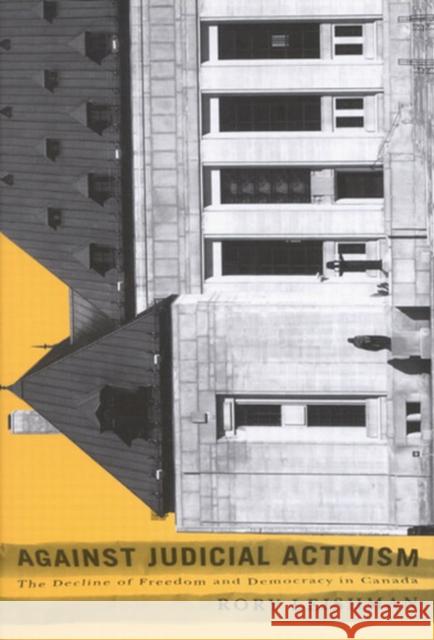Against Judicial Activism: The Decline of Freedom and Democracy in Canada » książka
Against Judicial Activism: The Decline of Freedom and Democracy in Canada
ISBN-13: 9780773530546 / Angielski / Twarda / 2006 / 310 str.
The Charter and expansive versions of the federal and provincial human rights codes were supposed to safeguard the human rights and fundamental freedoms of Canadians. Rory Leishman argues that this experiment in radical constitutional reform has failed because judicial activists and human rights adjudicators have read their ideological preferences into the law rather than upholding the law as originally understood. Against Judicial Activism cites numerous cases to support this argument. For instance, the British Columbia Human Rights Tribunal and Supreme Court read a ban on discrimination on the ground of transsexualism as being part of the province's human rights code. On the basis of this revision of the law, the tribunal ordered the Vancouver Rape Relief Society to pay $7,500 to a transsexual man in compensation for refusing to admit him into a training course for rape crisis counsellors. Leishman argues that the proclivity of judges and adjudicators to change the law from the bench compromises the rule of law, constricts the historic rights and freedoms of Canadians, violates the separation of powers under the Constitution, and subverts the democratic process.











